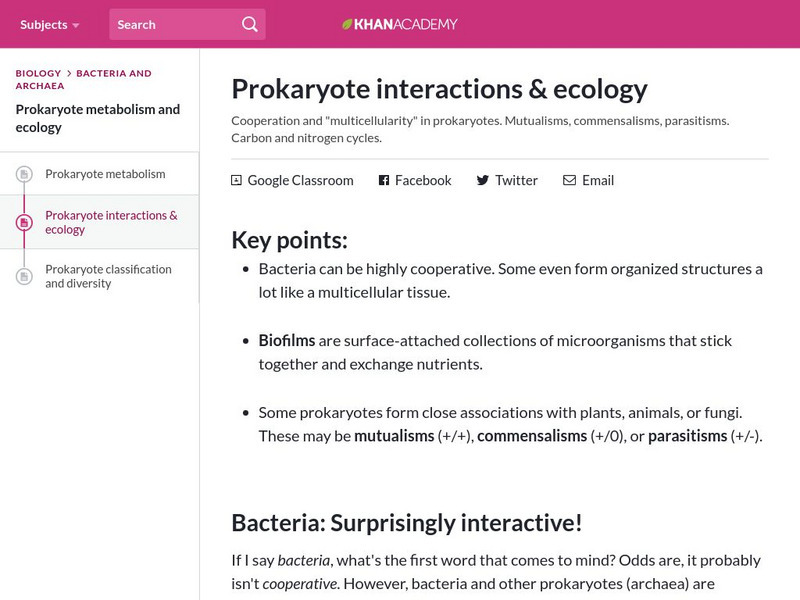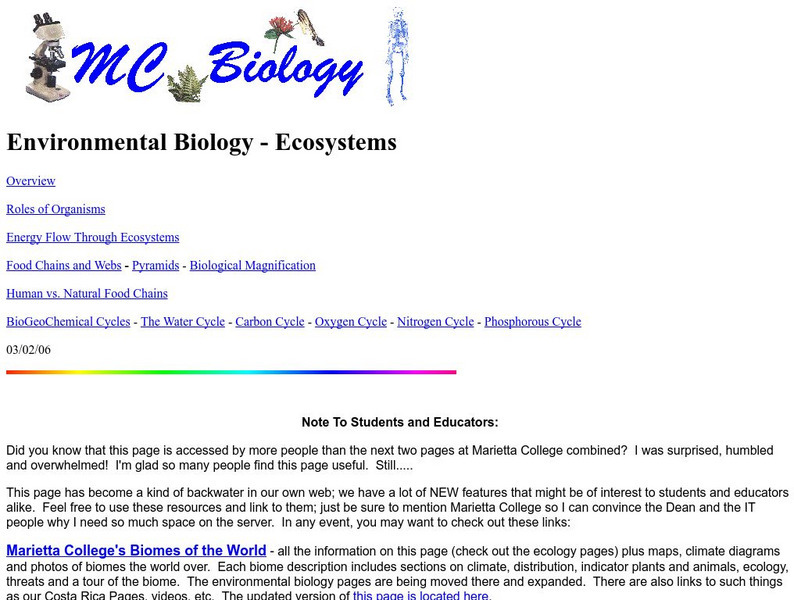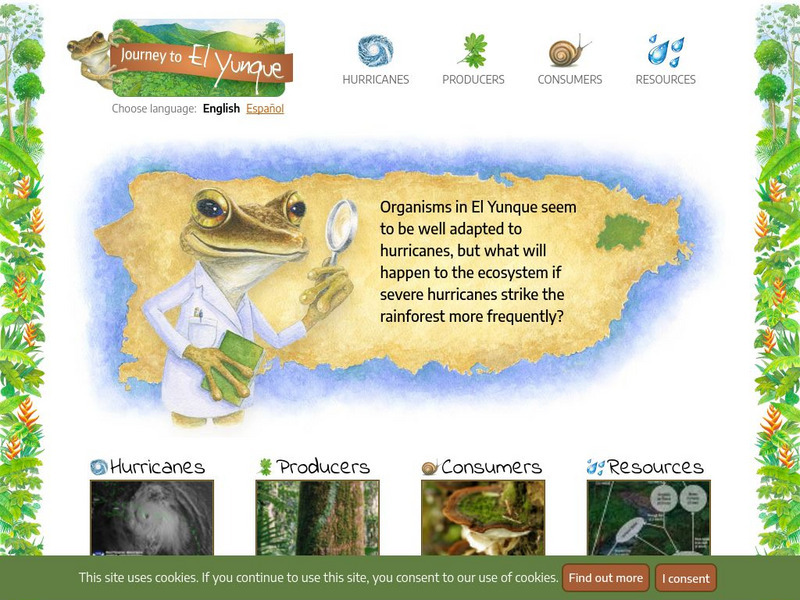Khan Academy
Khan Academy: Prokaryote Interactions & Ecology
Learn about cooperation and "multicellularity" in prokaryotes including mutualisms, commensalisms, parasitisms. Also find out the role of prokaryotes in the carbon and nitrogen cycles.
Ohio State University
Ohio State University: Concepts of Plant Ecology
An advanced discussion of plant interactions and relationships. Energy flow, nutrient cycling and succession are discussed. Try the quiz to check your understanding.
Khan Academy
Khan Academy: Biogeochemical Cycles Review
Review information on the cycling of matter throughout the spheres of Earth.
Other
S Cool: Engery Flow and Nutrient Cycle
This website describes trophic levels, transfer of energy between trophic levels, pyramids of ecology, and nutrient cycles within the environment.
Other
Marietta College: Ecosystems
Complete illustrated discussion of energy flow within ecosystems, including discussions of trophic levels, ecological pyramids, food chains and webs, biological magnification, and cycles.
Other
The Learning Partnership: Journey to El Yunque
In this set of learning modules, students examine the impact of hurricane weather on the El Yunque rainforest in Puerto Rico. They learn about hurricanes, producers, consumers, and the food chain, and how disruptions in organisms'...
Nature Research
Nature Education: Energy Economics in Ecosystems
This article discusses how plants and microorganisms, until recently, have mostly controlled how much carbon dioxide is released into an ecosystem, and explains how this process works. Humans' burning of fossil fuels has upset the...
US Geological Survey
Usgs: Earth Surface Dynamics (Research Activities)
This site from USGS provides several activities to help understand the interrelationships among earth surface processes, ecological systems, and human activities. Also included are links to new findings and programs concerning Earth...
Encyclopedia of Earth
Encyclopedia of Earth: Microbiology: Virus
Article explaining what viruses are, their evolution, taxonomy, morphology, and replication. Also covers mechanisms by which viruses cause disease, how they can impact on plants, and the potential and real benefits we get from...










